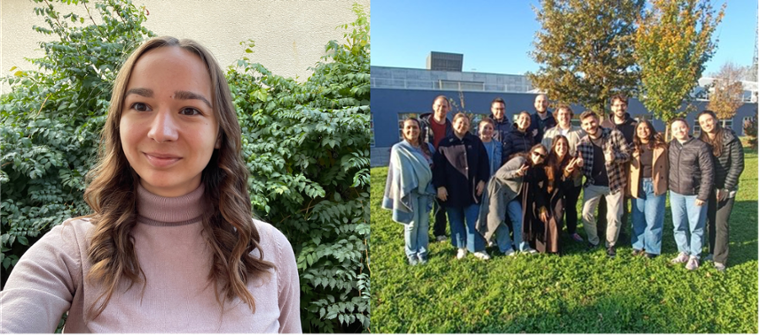On World Mental Health Day, 10 October, the University of Ljubljana organised a Science Cafe on the topic of sleep in the lounge of the University Rehabilitation Institute Soča (URI Soča). Sleep disorders in general are a serious public health problem as they increase the risk of chronic diseases, reduce quality of life and negatively affect productivity and safety. The event, which is part of the EUTOPIA_HEALTH project, brought together parents of children with developmental disabilities, professional staff from the URI Soča and researchers from the Department of Public Health at the Medical Faculty of the University of Ljubljana (MF UL).
Petra Wraber, Dr. Med., a specialist in physical and rehabilitation medicine, presented how poor sleep affects children and their parents, as well as the first results of a sleep study being conducted at the URI Soča. Sleep is one of the most important aspects of daily functioning and affects practically all other aspects of life. The results of the study obtained so far show that poor sleep quality is an important problem for children and parents treated at URI Soca, which is why Petra Wraber stressed the need for further research on this topic and for the urgent inclusion of sleep monitoring in rehabilitation programmes.
Karin Bojc from the University of Ljubljana presented the principles and essence of citizen science. Citizen science is a part of the scientific process that aims to involve the public more in the development of science and in the search for answers to research questions. It allows citizens to actively participate in data collection, analysis and the solution design, promoting both a better understanding of science and closer collaboration between scientists and society.
Parents of children with developmental disabilities highlighted the practices they have adopted to improve the quality of their own sleep and their children's sleep, as well as the main problems with sleep they face during the rehabilitation of their children. Other parents as well as URI Soča professionals helped them find with solutions and explanations.
Parents of children have pointed out that this type of event helps them to cope more easily with everyday sleep-related problems, as they can get a direct answer to questions they otherwise consider too trivial to be addressed scientifically in reviews and treatments. The professional staff of URI Soča and the researchers from the Department of Public Health of the Faculty of Medicine of the University of Ljubljana highlighted as an advantage, in particular, a better understanding of the everyday problems of parents of children with developmental disabilities, which helps them to tailor rehabilitation programmes and other policies. According to Dr. Katja Groleger Sršen, Head of the Department for Children's Rehabilitation at URI Soča and researcher at the Department of Physical and Rehabilitation Medicine at the MF UL, such events contribute significantly to better understanding of every-day issues parents face because "when you meet parents in a more relaxed atmosphere, they also open up more, so this kind of socialising brings significantly different information than formal examinations and discussions."
About the project EUTOPIA_HEALTH
The Science Cafe was the second in a series of public events organised by the EUTOPIA_HEALTH project, which aims to bring science closer to citizens and industry by involving the public in research processes and fostering collaboration between academic institutions, businesses and communities. The project aims to build bridges between scientific knowledge and the real needs of people and industry in order to accelerate the uptake of innovation and improve the quality of life in society.
Too often, science takes place behind the closed doors of laboratories and research institutes, disconnected from the everyday lives of the people who could benefit most from its discoveries. For science to be of real benefit to society, it needs to be brought closer to people, engaging them in conversation and providing a space for them to ask questions and exchange views. By bringing scientific debate into public spaces, we bridge the gap between scientists and the public, building a community that understands how scientific knowledge affects their lives and their future.
This article was originally published on the University of Ljubljana website.

